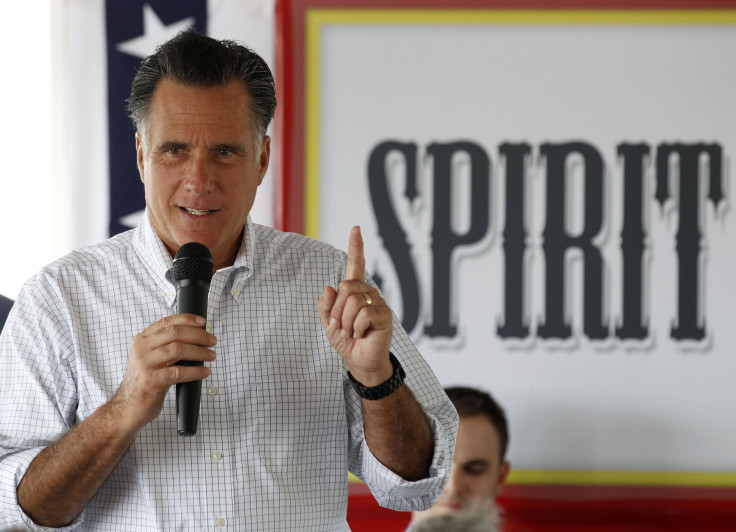Even With Post-Debate Bump, Romney Still Unpopular

It has been a motif in the media's narrative of Mitt Romney's 2012 presidential campaign, a shortcoming the Republican nominee has been unable to shake even as he secured the Republican nomination and pulled even with the president: Voters don't seem to like him.
That is different from saying Americans are unwilling to vote for Romney. He won over enough primary voters to become the Republican standard-bearer, and he has been locked in a statistical dead heat with President Obama for much of the campaign; even after falling behind Obama in polls of both the national electorate and key swing states, Romney seems to have made up ground after a resurgent debate appearance.
But the popularity dynamic underlying that bump is still familiar. A new Washington Post/ABC News poll gives Romney his highest favorability rating yet, but he is still in the negative: 47 percent of (registered voters view him favorably, compared with 51 percent who think otherwise).
Of the four candidates since 1980 who have been similarly underwater, none won: Jimmy Carter in 1980, Walter Mondale in 1984, George H.W. Bush in 1992 and John Kerry in 2004.
And even as Barack Obama's campaign weathers the fallout of his somnolent debate performance, the president has maintained his edge in likability: 55 percent of voters said they view the president favorably, against 44 percent who do not.
This has been the case throughout the general election. Obama seems to connect better with voters on a personal level, while Romney's notorious penchant for appearing awkward and out of touch makes it hard for him to score points in the favorability category.
It was true during the Republican primary, when voters overwhelmingly said they liked Romney less as they learned more about him; it was true even as the Republican Party closed ranks behind Romney, when the Washington Post/ABC poll found that Romney had a historically low approval rating; and it was true even as Romney the nominee matched President Obama in crucial battleground states.
Even Speaker of the House John Boehner endorsed the view that voters need not personally like Romney to back him in the election, saying earlier this year that Americans "aren't going to fall in love" with the nominee.
All of this is not to suggest that favorability ratings determine presidential elections. Even as they have registered their approval of Obama as a person, voters have given the president low marks on job performance, particularly his handling of the economy. That represents an opening for Romney, who has built his campaign on the vow that he is better positioned to reinvigorate the economy and create jobs.
But it does suggest that Romney is having a hard time transcending his wooden reputation. If he does win the White House in November, it will be because voters decided he was the better man for the job -- not because he wowed them with his warmth and charisma.
© Copyright IBTimes 2024. All rights reserved.











